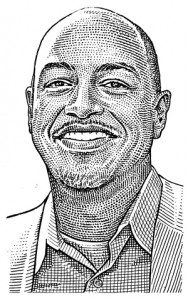 This is the toughest–and most hotly debated–question among modern evangelicals interested in some level in Christian history today. Should we read the works of men who held slaves? Can we profit from them?
This is the toughest–and most hotly debated–question among modern evangelicals interested in some level in Christian history today. Should we read the works of men who held slaves? Can we profit from them?
I come to this issue with my own perspective and background, those which God gave me. It was helpful for me to see the reasoned and gracious thoughts of a young African-American pastor-theologian named Anthony Carter on this subject. Carter is happily reformed but aware of the fact that a discouraging number of reformed Christians either held slaves or supported slavery (most of them understanding it something like we would understand indentured servitude today). I hate this fact, and so does Carter.
Let’s be crystal clear: racism in the past is reprehensible, American slavery was a stench in God’s nostrils, and it is frankly alarming that so many believers did so little to oppose it and in fact bought into it. We feel the weight of this sin today, and well we should. (Here’s one believer named Samuel Sewall who hated slavery, by the way, and who helped lead many evangelicals to the heart-change they sorely needed on this issue).
Knowing all these things, Carter indicates in this Table Talk interview (republished on the Reformed African American Network) that he still believes he can learn from past Christians who sinned terribly in this area. Here is his personal framework for thinking through the issue:
Indeed, this is one of the hurdles many (not all) African American Christians find hard to get over as they come to understand and embrace Reformed theology. I have often contended that the reticence that some African Americans have toward an embrace of Reformed theology is not as much the theology as it is the ones who have held to it. There are, however, a couple things to be said about this. First, the sordid, sinful, and tangled history of slavery in America was not just the property of Reformed Christians. Christians from practically every religious confession in America have a poor history of racism and even slave holding. To disregard any tradition that held slaves would be to disregard practically every theological tradition in America. Admittedly, the problem has often been that while other traditions have been quicker to acknowledge their sins in this regard, many in the Reformed tradition have been slow to and have even retreated into their own theological and cultural enclaves rather than deal publicly and forthrightly with the transgressions of the past. Consequently, Reformed Christians have been viewed as less vigorous in denouncing the sins of slavery and thus implying their approval of it. This perception is unfortunate, yet real.
Nevertheless, the question remains. To answer it, allow me to make it personal. How can I, a black man, embrace the theology of men who owned slaves? I can joyfully embrace it because I realize that I am embracing the theology of the Bible and not necessarily the frail, fallible men who teach it. I can embrace the theology because it allows me to point out the sins of such teachers and yet the grace that is greater than that sin.
How could the early Christians embrace the theology of the Apostle Paul when, as Saul of Tarsus, he pursued, persecuted, and even consented to many of their deaths? They could do it because they understood the gospel to be greater than not just their sins but also the sins of those who transgressed against them. I can embrace it because if we listen and learn only from those in history who have no theological blind spots, then to whom shall we listen and from whom shall we learn? Biblical theology must be larger, more grand than the imperfections of its teachers. I believe Reformed theology is.
I post this here because, as a professor of church history, I regularly get this question from my students and friends. I hope Carter’s answer can prove helpful to those working through one of the toughest areas of church history.











